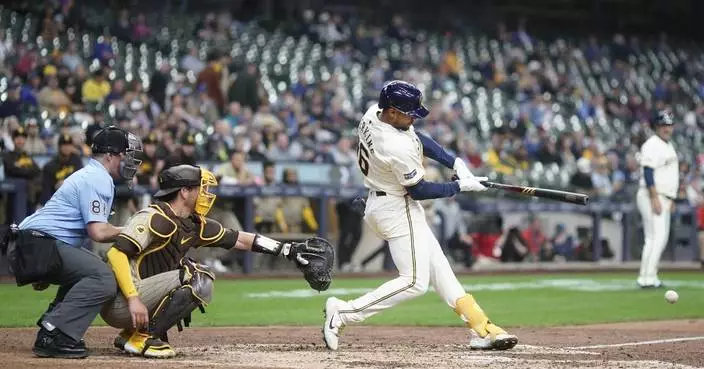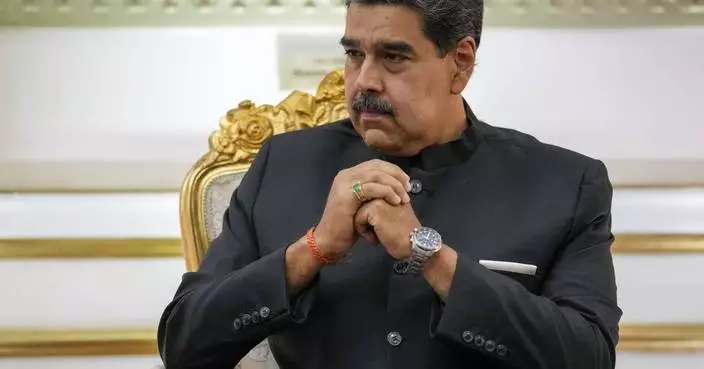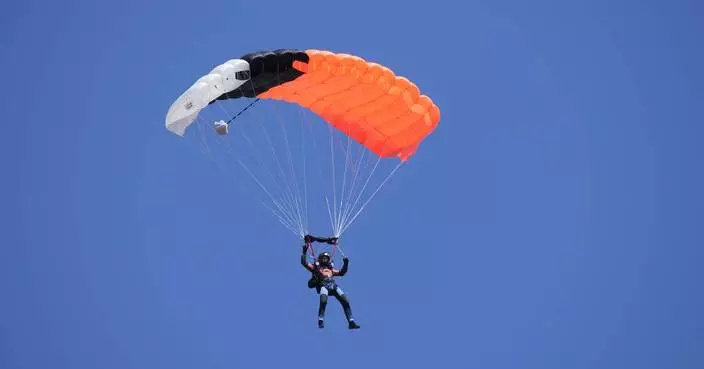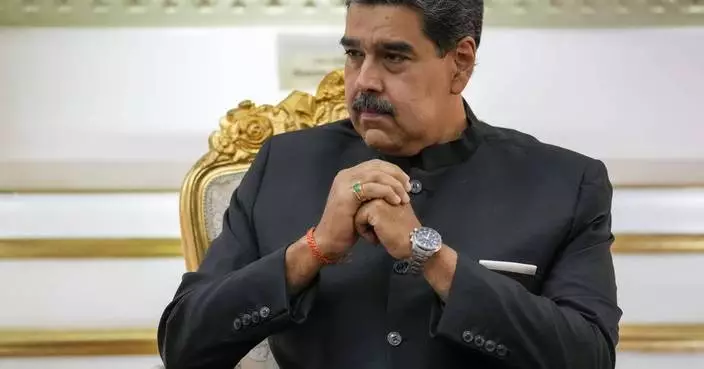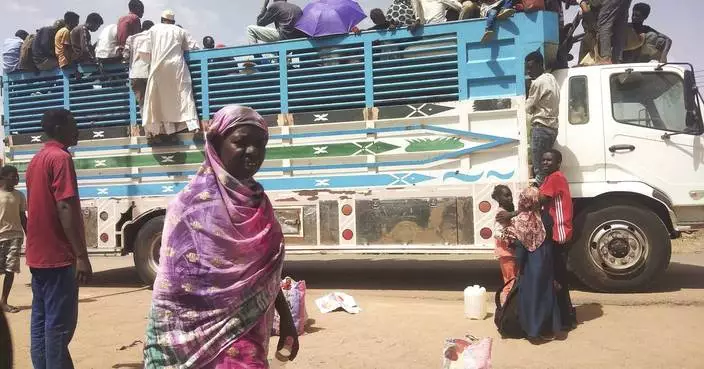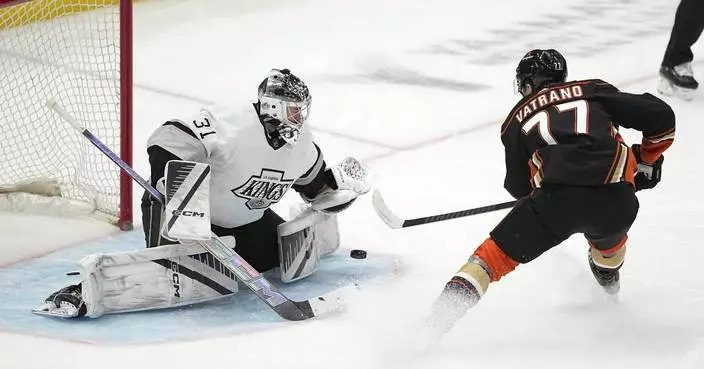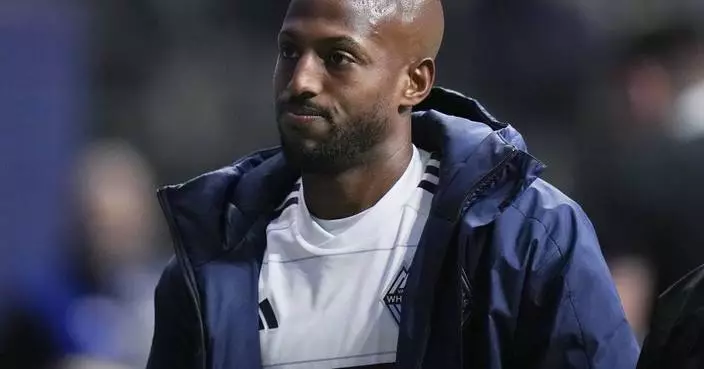The European Union said Tuesday it won't send observers to monitor Venezuela's upcoming congressional election, citing a lack of fair conditions for a vote that could erase the opposition's last major domestic stronghold of power.
The government had invited the EU to send an electoral mission, but “I have to conclude that conditions are not met, at this stage, for a transparent, inclusive, free and fair electoral process,” EU foreign policy chief Josep Borrell said in a statement.
Still, he welcomed a report that President Nicolás Maduro's government and an unspecified sector of the opposition are in talks over possibly delaying the vote, which is now set for Dec. 6.
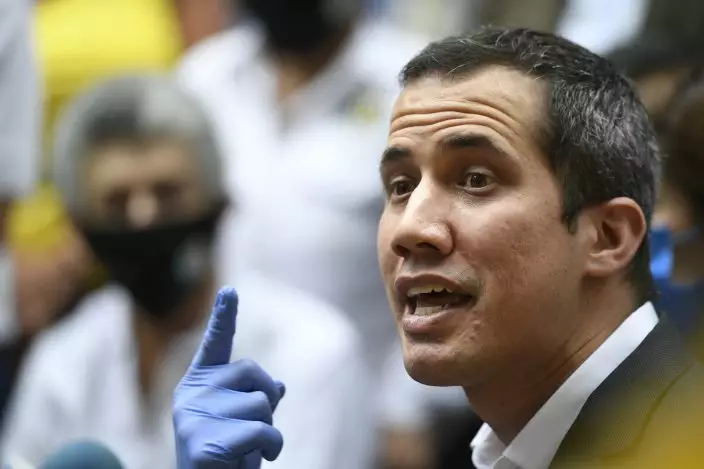
FILE - In this June 17, 2020 file photo, Venezuelan opposition leader Juan Guaido speaks upon his arrival to the headquarters of Democratic Action political party in Caracas, Venezuela, the day after Venezuela's Supreme Court ordered its takeover ahead of parliamentary elections expected this year. A coalition of political parties in Venezuela led by U.S.-backed Juan Guaido said Sunday, Aug. 2, that it won't participate in upcoming congressional elections called by officials loyal to President Nicolas Maduro. (AP PhotoMatias Delacroix, File)
The election will fill seats in the National Assembly now headed by opposition leader Juan Guaidó, who the U.S. and more than 50 other nations recognize as the country's legitimate leader. They said Maduro's reelection had been fraudulent.
Maduro sees the election as an opportunity to take over the one branch of government now out of his control and the pro-government Supreme Court made that more likely by ordering changes in the leadership of several major anti-Maduro parties. Opposition parties say the electoral commission also is stacked against them.
More than two dozen leading opposition parties recently announced a boycott, aiming to undermine the vote’s legitimacy.
Maduro is fighting off a campaign to oust him by Guaidó's coalition amid a political and economic crisis in the once-wealthy oil nation that has led to mass migration.
Maduro's Foreign Affairs Minister sent EU leaders a letter saying a sector of the opposition is in talks with the socialist government about a possible election delay. Yet, it was unclear who Maduro's government is negotiating with. Other parties that don't include Guaidó and claim to be opposed to Maduro have been in talks with the government and have agreed to go ahead with the vote.
Borrell welcomed the discussion of the delay.
“It is a step in the right direction, but not enough for the European Union to be able to deploy an Election Observation Mission,” he said. “To do that, we need a precise and a broadly positive answer to the minimum requirements defined by the opposition.”
NCAA athletes will be immediately eligible to play no matter how many times they transfer — as long as they meet academic requirements — after the association fast-tracked legislation Wednesday to fall in line with a recent court order.
The NCAA announced the Division I Council's decision becomes official Thursday when its meeting adjourns. The change still needs to be ratified by the DI Board next week, but that is expected.
The new rules will go into effect immediately, though in reality they have already been enacted through a lawsuit filed late last year.
Transfer windows, which are sport-specific, remain in place and require undergraduate athletes to enter their names into the portal at certain times to be immediately eligible at a new school. Graduate students can already transfer multiple times and enter the portal outside the windows while maintaining immediate eligibility.
A coalition of state attorneys general late last year sued the NCAA, challenging rules that forced athletes that wanted to transfer multiple-times as undergraduates to sit out a season with their new school.
A judge in West Virginia granted the plaintiffs a temporary injunction, lifting requirements for multiple-time transfers to request a waiver from the NCAA to be immediately eligible to compete.
The NCAA quickly requested the injunction be kept in place throughout the remaining school year to clear up any ambiguity for athletes and schools. The association has had to issue guidance to its members to clarify what that means for next season. Now the rules match the court ruling.
By eliminating the so-called year-in-residence for transfers, an athlete must be academically eligible at the previous school and not subject to any disciplinary suspension or dismissal to compete immediately at a new school. Transferring athletes must also meet progress-toward-degree requirements before competing.
“We hope that this practical approach to transfer eligibility requirements will encourage student-athletes to make well-informed decisions about transferring and the impacts such a move could have on their ability to graduate on time in their degree of choice, particularly as it relates to transferable credits,” Florida deputy athletic director and council chairwoman Lynda Tealer said in a statement.
The board will ask the committee on academics to explore creating a new metric — similar to the NCAA's Academic Progress Rating — that would hold schools accountable for graduating the transfers they accept.
The portal windows are currently open for both football and basketball, and the lifting of restrictions on multiple-time transfers has led to an uptick in athletes looking to switch schools.
In a notable move that would not have been permissible without a waiver under previous rules, Alabama offensive tackle Kadyn Proctor entered the portal in January after Crimson Tide coach Nick Saban retired, committed to Iowa, but then changed his mind during the spring and has reentered the portal with the intention to reenroll at Alabama.
The DI Council also moved forward on legislation that would allow schools to be more actively involved in securing sponsorship deals for their athletes. Schools could still not directly pay athletes, but they could facilitate NIL opportunities between third parties and athletes.
AP Sports Writer John Raby in Charleston, West Virginia, contributed to this report.
Follow Ralph D. Russo at https://twitter.com/ralphDrussoAP and listen at http://www.appodcasts.com
AP college football: https://apnews.com/hub/college-football
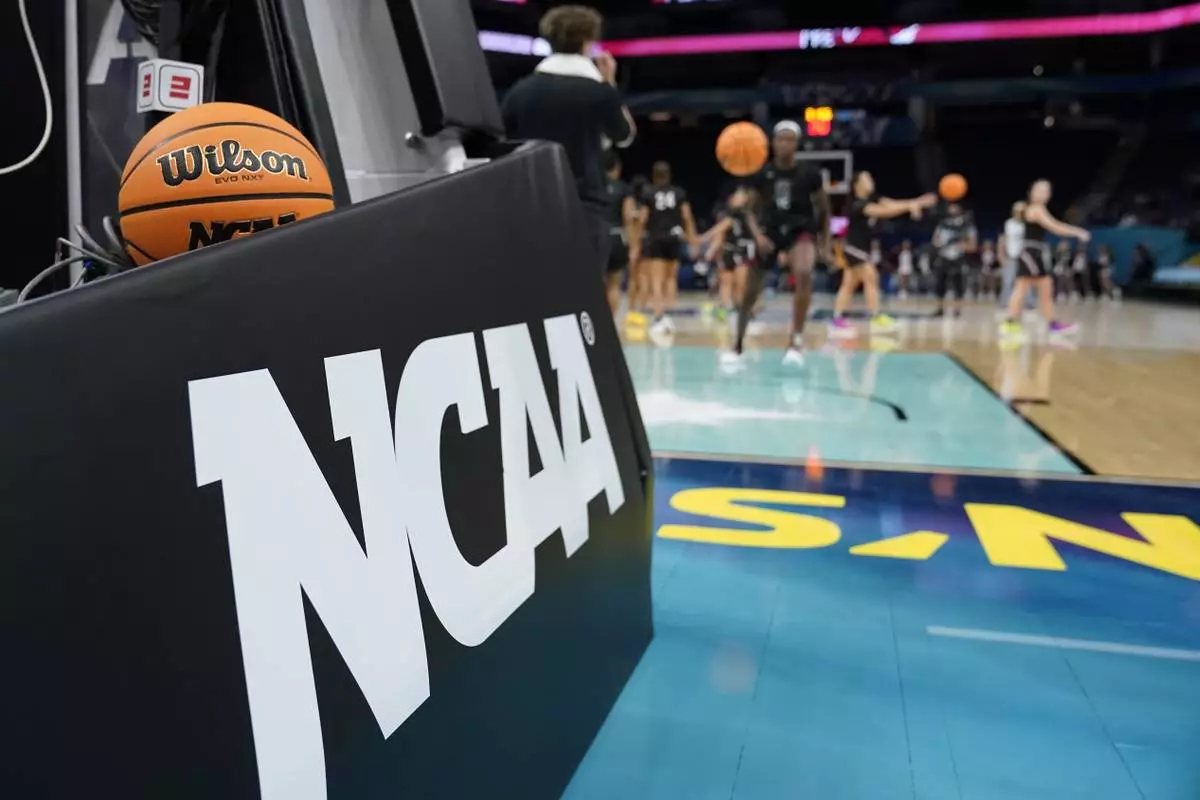
FILE - South Carolina players work out during a practice at the Women's Final Four NCAA college college basketball tournament, Saturday, April 2, 2022, in Minneapolis. NCAA athletes will be immediately eligible to play no matter how many times they transfer — as long as they meet academic requirements — after the association fast-tracked legislation Wednesday, April 17, 2024, to fall in line with a recent court order. (AP Photo/Eric Gay, File)
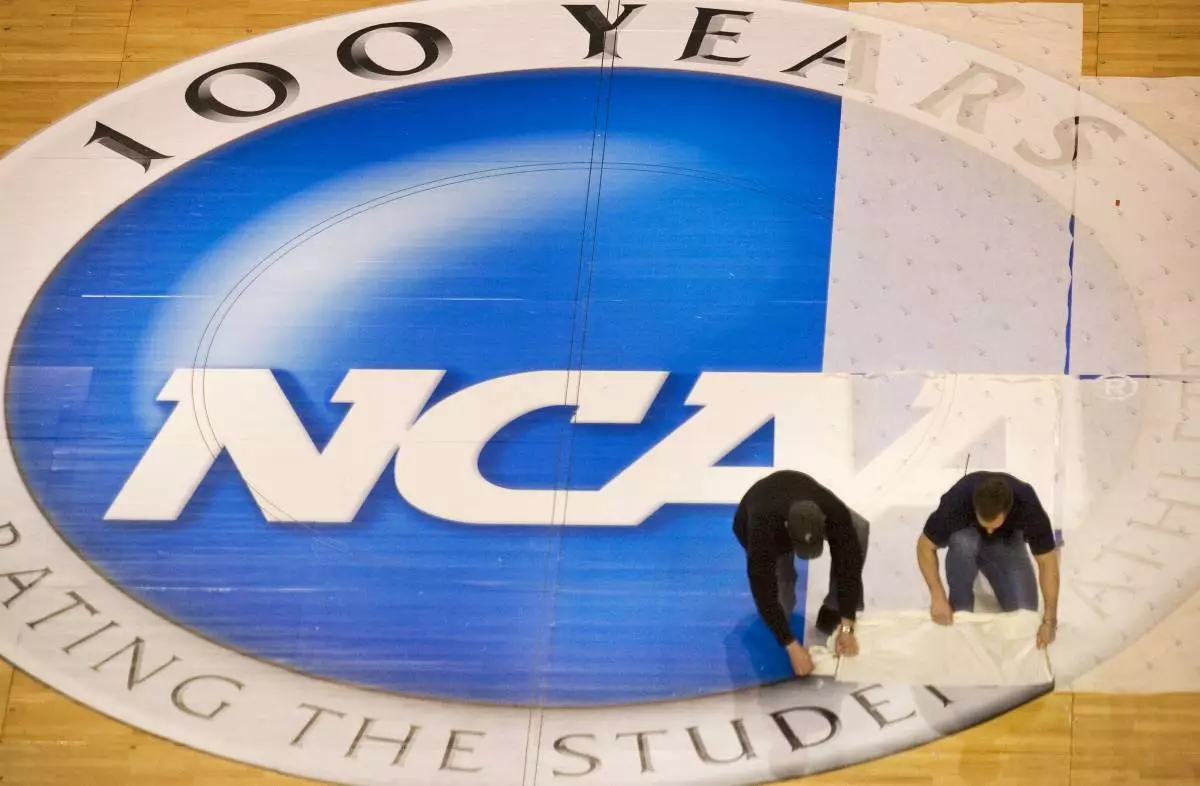
FILE - Wachovia Center operations manager Jim McDonald, left, and carpenter foreman Tim Allen remove the protective film covering the NCAA logo at mid-court on the center's basketball court, Wednesday, March 15, 2006, in Philadelphia. NCAA athletes will be immediately eligible to play no matter how many times they transfer — as long as they meet academic requirements — after the association fast-tracked legislation Wednesday, April 17, 2024, to fall in line with a recent court order. (Ed Hille/The Philadelphia Inquirer via AP, FIie)






